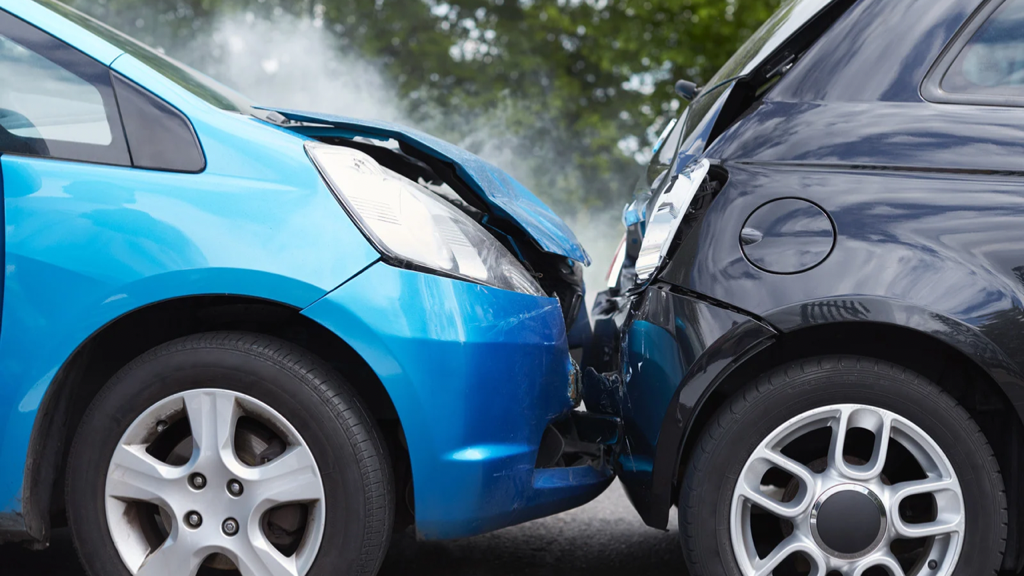|
Motor vehicle accidents happen every day in T&T causing injury and damage not only to the driver at fault but also to innocent third parties. How do innocent third parties get compensation for the injury and damage they receive due to the acts of a negligent driver?
Compensation usually comes from insurance
The Motor Vehicles Insurance (Third Party Risks) Act provides protection to innocent third parties who suffer injury or damage as a result of negligent drivers. Under section 3(1) of the Act every owner of a vehicle or licensed trailer that is used on a public road MUST hold an insurance policy to cover against the risk of injury, death or damage to third parties. A “public road” means any street, road or open space to which the public has access and any bridge over which a road passes, and includes any privately owned street, road or open space to which the public has access either generally or conditionally. Under section 3(2) of the said Act, if an owner of a vehicle or licensed trailer fails to hold such an insurance policy he would be liable to a fine of $7500TT and to imprisonment for two years, and a person convicted of such an offence (unless the Court for special reasons thinks fit to order otherwise and without prejudice to the power of the Court to order a longer period of disqualification) would be disqualified from holding or obtaining a driving permit for a period of 3 years from the date of conviction. Additionally, according to section 4 of the Act, a policy of insurance must be:
The driver of a motor vehicle must always carry the certificate of insurance in the vehicle as evidence that there is an insurance policy in force. If you are ever a victim in a motor vehicle accident it is important to ask the driver to see the certificate of insurance for the vehicle and also verify with the insurance company that the policy is valid.
The driver that caused the injury and/or damage must be covered by the insurance policy.
In addition to confirming that an insurance policy is valid, it is also important to determine whether the person driving at the time of the accident is actually covered by the policy. Some insurance policies contain restrictions on who is permitted to drive the vehicle and provides coverage only to such persons. For example, some insurance policies require that only persons over the age of 25 are permitted to drive the vehicle and must have a minimum of two years driving experience. Others further restrict the use of the vehicle to only drivers specifically named on the certificate of insurance. If the driver at the time of the accident falls outside of these restrictions, then no insurance payment will be made. According to Section 4(7) of the Motor Vehicles Insurance (Third Party Risks) Act an insurer must indemnify the person insured (that is the person specified in the policy) as well as persons he/she gave consent to use his vehicle in respect of any liability which the policy purports to cover. The effect of this section appears to be that an insurer must provide coverage to the person named in the policy as well as any person that he gave consent to use his vehicle. However, in the case of The Presidential Insurance Company Limited v Resha St. Hill [2012] UKPC 33 the court considered the meaning of this section in relation to insurance policies which are limited to only the owner of the policy (that is only the owner is authorised to drive the vehicle). The court found that in such instances where the insurance policy is limited to only the owner of the policy, the coverage cannot extend to cover any other driver even if the policy holder gave consent. Therefore, in interpreting this section of Act, any restrictions in a policy in regard to persons authorized to drive would still apply.
There is a limit on liability for the insurance company
In Trinidad and Tobago there is a minimum amount of coverage required by the Act. Thus, insurance companies are not required by law to provide coverage above these minimum amounts. According to the said Act, the minimum coverage for death or bodily injury is TT$1,000,000 for any one claim by any one person and TT$2,000,000 for total claims arising from one accident. The minimum coverage for third party property damage is TT$500,000 for any one claim by any one person and TT$1,000,000 for total claims arising from one accident. Even though there is a limit of liability for the insurance company, this does not mean that a person seeking a claim cannot claim more than these amounts if his actual losses are greater. He can seek to recover the excess losses from the driver or owner of the vehicle directly.
In order to get compensation you must show the driver was negligent.
In order for an innocent third party to claim compensation in relation to a motor vehicle accident, he must show that the driver was negligent. He must show that the driver owed him a duty of care, there was a breach of that duty and that he suffered damage as result of that breach. The driver of a motor vehicle owes a duty of care to other road users, pedestrians and occupiers of premises abutting the road to drive carefully. If a driver was, for example, not paying attention to the road way, was on his phone or was speeding and caused an accident that resulted in damage to an innocent third party such as a pedestrian or to another vehicle, that third party will have a claim for compensation. It should be noted here that liability for an accident can also fall on a person who was not present when the accident took place. A common example is where an employer is found liable for an accident and the resulting injury and damage that occurred while his employee was driving his vehicle. This is called vicarious liability. The employer (including a company - which is legal person) can be found vicariously liable for the negligence of his employee once the negligence took place during the course of employment. However, for an insurance policy to cover an employee the policy must not be restricted to only the owner of the vehicle (the employer). Additionally, section 4A of the Motor Vehicles Insurance (Third Party Risks) Act also expands on the scope of vicarious liability, specifically in respect of vehicles licensed to ply for hire. It states: “4A. Notwithstanding any other law, the owner of a motor vehicle licensed to ply for hire and insured under this Act is deemed to be the employer of any person driving the motor vehicle at the time of an accident as a result of which a person has suffered death, bodily injury or damage to property unless it is shown that at the time of the accident that the vehicle was the subject of larceny." Therefore an insured owner of any vehicle licensed to ply for hire is deemed to be the employer of any person driving it at the time of an accident and is vicariously liable for the driver's negligence - once the vehicle was driven with the owner's consent (was not stolen). However, for an insurance policy to cover an employee the policy must not be restricted to only the owner of the vehicle.
Once it is shown that the driver is covered by the insurance policy and the driver was negligent, the insurance company must satisfy the resulting judgment.
Once it is shown that the driver was covered by the insurance policy and the driver was negligent when the accident occured, the insurance company of the owner of the vehicle is liable to compensate the injured third party. Section 10 of the Motor Vehicles Insurance (Third Party Risks) Act imposes duties on an insurer to satisfy judgments that third parties obtain against a person insured under one of its policies.
What happens when the driver is uninsured
When a driver is uninsured and causes injury or damage to others it can be difficult for innocent third parties to be justly compensated or be compensated at all. Parliament has attempted to address this social evil but loopholes remain. In the case of the Presidential Insurance Company Ltd v Resha St Hill [2012] UKPC 33, the court noted that: Despite public awareness of the issue for at least thirty years, there is in Trinidad and Tobago still no equivalent of the Motor Insurers Bureau or any other facility to ensure that the victims of negligent but uninsured drivers do not go uncompensated. It also pointed out that section 12 of the Motor Vehicles Insurance (Third Party Risks) Act might be the natural section on which to build if the legislative aim is to provide compulsory insurance cover, regardless of the policy definition of the persons covered, when anyone uses an insured vehicle with the policyholder’s consent. The cases of Gloria Phillips v Motor and General Insurance Co Ltd H.C.A. 71 of 1985 and Velma Germaine Eligon v N.E.M. (West Indies) Ltd. H.C.A. 686 of 1974 both identify the present effect of section 12 of the Act. In the latter case the policyholder permitted someone with an ordinary (not a taxi) driving licence to drive his taxi for the driver’s own purposes. The policy only covered the policyholder and persons in his employ, which the driver was not. Apart from that problem, the policy required any person driving to be licensed to drive a taxi, which the driver was not. So the driver’s claim to indemnity failed - meaning the damage and injury that he caused to others as a result of the accident would not be covered by the insurance policy. The judge said that the creation of a Motor Insurers Bureau was necessary. In practice it can be seen that the Motor Vehicle Insurance legislation in Trinidad and Tobago needs to be reviewed and amended especially to deal with the issue of uninsured drivers; particularly those not covered in policies due to restrictions in the policy on persons authorized to drive (despite consent being given by the policyholder).
Important Notice: This post does not constitute legal advice. Always consult with an attorney on any legal problem or issue.
This website is managed by AURORA Chambers; a law practice in Trinidad and Tobago. Click HERE to receive updates straight to your inbox by subscribing to our newsletter.
1 Comment
Allison
13/12/2023 12:05:53 pm
With regard to settlement/compensation, should depreciation be taken on a third party's property damage claim?
Reply
Leave a Reply. |
Categories
All
Archives
June 2024
|
LawForAllTT.com |
|









 RSS Feed
RSS Feed